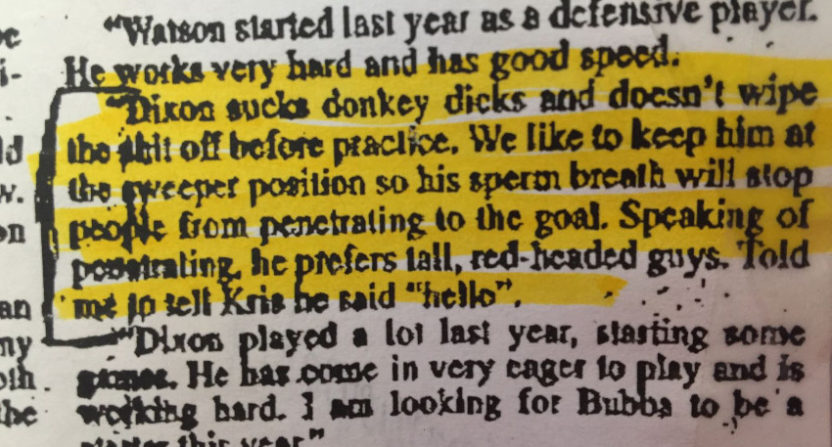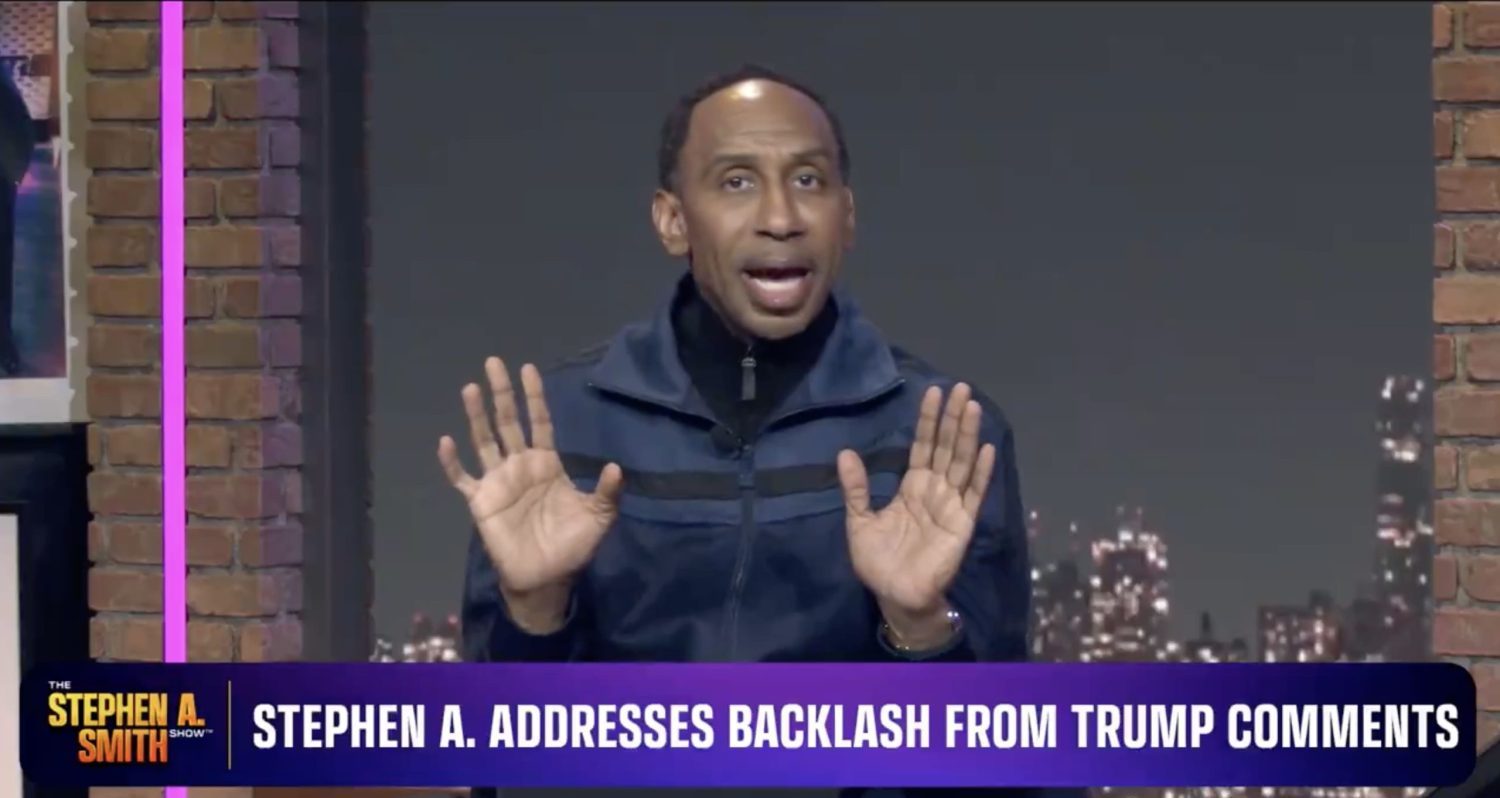There have been plenty of famous sports mistakes in newspapers, from The Brandon Sun‘s “Keith Hernandez hangs himself in prison” (they meant Aaron) to a Michigan newspaper chain mixing up who beat the Lions to The Waterloo-Cedar Falls Courier saying Tommie Frazier was still playing for Nebraska (they meant Tommy Armstrong Jr). But those were mostly typos. Running a profane fake quote inserted as a joke is on a whole different level.
But that’s what the Gallatin News Examiner (a small-city Tennessee paper) did back in 1997, leading to a piece that’s been passed around newspapers, magazines and journalism classes as a cautionary tale forever. Now, Jeff Pearlman has examined the whole story behind the infamous “Dixon sucks donkey dicks” paragraph in a piece for Deadspin, and it’s an excellent read. First, the actual paragraph in question, which was the 12th paragraph in an otherwise-normal preview of a high school soccer team and was presented as a quote from coach Rufus Lassiter:
“Dixon sucks donkey dicks and doesn’t wipe the shit off before practice. We like to keep him at the sweeper position so his sperm breath will stop people from penetrating to the goal. Speaking of penetrating, he prefers tall, red-headed guys. Told me to tell Kris he said ‘hello.’”
As Pearlman details, the piece in question came from writer Nick DeLeonibus, a 27-year-old college dropout without journalism experience who wound up at the paper because he was available, and because his step half-brother was an editor there. DeLeonibus sometimes clashed with 21-year-old Kris Freeman (the “Kris” referenced there, who was tall and red-headed), the sports editor, and he’d occasionally drop jokes and laugh lines into his pieces for Freeman to remove.
The two of them made up the paper’s whole regular sports staff, and this particular piece got in the paper because they were both rushing to put things together following late basketball games, leading to Freeman (as per what he told Pearlman) only reading the first few paragraphs of the soccer preview and taking DeLeonibus’ word the rest of the copy was clean. And DeLeonibus reportedly was just adding to what he’d already written at that time, so he presumably forgot he’d put the obscene part in.
There’s a dispute about if DeLeonibus resigned or was fired, but either way, he left following a brief legal review and never worked for the paper again. He told Rochelle Carter of The Tennessean later that day “I couldn’t feel any worse…I’ve polluted the newspaper of the county I’ve lived in for virtually all of my life.” He wound up working as a sales employee and part-time music teacher in local stores, and died of a heart attack in 2015.
The latest
It’s certainly curious that the paper didn’t settle despite what seemed like a pretty obvious case. But what’s perhaps most interesting, and maybe most instructive going forward, is what Pearlman writes about the court testimony and the impact on Dixon:
The stories the journalists told detailed what was perceived to be a largely rudderless ship often overwhelmed by immaturity and grade-level jocularity. DeLeonibus admitted on the stand that “donkey dicks” was the third laugh line he had inserted into a sports story. Another scribe testified that in his time as a News Examiner correspondent, he wrote jokes as slugs “six or seven times” and once used a story headline about a team receiving an “ass-kicking” from an opponent. Reporting on the trial, The Tennessean summarized testimony of staffers by writing that vulgar and obscene language was “often” deliberately added to articles. Freeman, who during the eight-day ordeal attended only when called to testify, told the court he once reprimanded DeLeonibus for using the office telephone to place NFL bets for his weekly pool. “I’d never been through anything like the trial experience,” he says.
The key, [Dixon’s attorney Clint] Kelly says, was Garrett Dixon Jr., who came off as a broken, defenseless child attacked for doing absolutely nothing. Dixon testified that he begged people to stop calling him “Bubba” because he wished to shed any identity tied to the story. “Imagine walking around school,” he said, “and every pair of eyes…” He stopped speaking and began to cry.
Overall, this is a pretty good example of why not to use joke placeholder paragraphs or headlines, as far too many of them wind up making it into print. And Pearlman’s piece is also an interesting look at what happens after a mistake like this; it had significant effects on careers (especially for DeLeonibus, but Freeman also took some abuse for a while), on subjects (Dixon endured a lot of bullying as a result), and on the paper as a whole. It’s a notable piece for showing that this was much more than just something laughed at, passed around, and quickly forgotten. And hopefully it can prevent some similar mistakes down the road.
[Deadspin]






